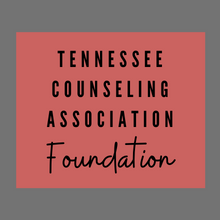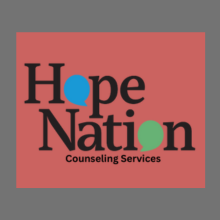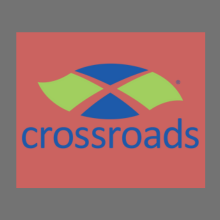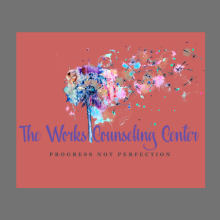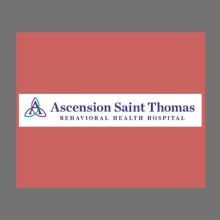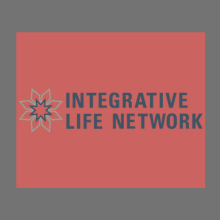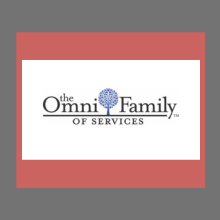Member Spotlight
What is your name?
Trent Hughes
What TCA Chapter/Division are you a member of?
Middle Tennessee (MTCA)/ TN Association for Counselor Education and Supervision (TACES)
How long have you been a member of TCA?
Approximately 6 months
How has TCA influenced your career or practice?
TCA has provided me opportunities to learn from other clinicians and has provided invaluable resources to advance my work in counseling with my clients. I have also recently been provided the opportunity to present at the TCA conference in October 2019, which influences my passion to continue sharing about counseling in our field.
Share a little bit about your background and your journey to becoming a counselor.
I began my journey to become a counselor at age 18. I have always been intrigued to understand human behavior and have always been interested in being a therapist. I entered college to begin my undergraduate degree in psychology and just before my senior year, I left and returned home because of family issues, causing me to pursue other opportunities. While I was in my hometown, I began traveling the country and playing music. During my time traveling, I remained unhappy because I had stepped away from my passion for psychology. During my last year of traveling, I returned to school and finished my undergraduate degree in psychology. Immediately after completion, I entered Trevecca to pursue my master’s degree in counseling. After completion, I immediately enrolled to pursue my Ph.D., which I am about to complete in clinical mental health counseling, teaching, and supervision.
What is your current work setting?
I currently work at Cedar Recovery as the Chief Clinical Officer. In this role, I oversee operations of our offices, an internship program, support lead therapists in each of our offices, implement counseling programs to enhance opportunities for success in recovery, and I also have some opportunities to provide therapy to patients within Cedar.
Do you have a specialty or a particular area of interest?
Currently, I specialize in trauma and addiction work. Although these are two of my particular areas of interest, I remain interested in finding new counseling strategies to help those in addiction, specifically Medication Assisted Treatment.
Take us through a typical day for you in your current setting/position.
A typical day begins with chart review with therapists and physicians, for patients who will be coming into our offices for the day. Throughout the day, I provide therapy for patients when possible because I enjoy keeping a small caseload throughout the week. I also provide support to our lead therapists, interns, and office staff, as needed throughout the day. As often as I can, I finish the day with seeing clients of my own in a private practice setting.
Do you have any career or practice aspirations moving forward?
I am currently working to complete my Ph.D. in clinical mental health counseling, teaching, and supervision. I also teach Chemical Use and Abuse at Trevecca Nazarene University and I would like to always teach in some capacity. As a very specific aspiration, I am also interested to train in psychoanalysis. Most importantly, I would like to continue becoming an effective therapist to help provide the best clinical care for those I treat in a therapeutic setting.
What advice would you give a counselor-in-training entering the field?
For those entering the field, I highly recommend participating in any event TCA provides, and/or other education/training opportunities. While we learn invaluable knowledge in graduate school, we really learn application when we begin working in the field. The most important piece of advice I maintain for self is, never stop being teachable!
Can you tell us a little bit about the innovation you are providing in the field of Medication Assisted Treatment and counseling?
I initially gained training in the addiction field by working in an abstinence-based program. The program where I trained and worked remains an excellent abstinence program and I feel very fortunate to have had the opportunity to work as a “tech,” an intern, and a therapist. During the time I was there, however, I was also trained that MAT was “bad” and there was no place for it in treating addiction. I feel this has been a standard belief in the treatment community for quite some time, until recently. While working in abstinence-based treatment and after much reflection, I determined there must be additional approaches to helping people with MAT. Since beginning Cedar Recovery, I realized that with evidence-based counseling approaches parallel to the model(s) that abstinence-based programs developed, recovery is possible for those who use MAT. MAT can be an extremely vital part of helping those suffering with opiates. With a comprehensive counseling program, the work in MAT has proven to have efficacy for those struggling with addiction. Since beginning the comprehensive treatment program at Cedar Recovery, we have seen people struggling with addiction in our communities begin to feel better, get better, and stay better.
Do you know a TCA member who is engaged in leadership, research, innovation, or service? If so, we would like to feature them in an upcoming blog post! Fill out the link below to nominate someone to be featured in the Member Spotlight section today!
Member Spotlight Nomination Form: https://forms.gle/uciVkHwEDpYhTbg96
Awareness Highlight: Human Rights Day
This year, Human Rights Day is on Tuesday, December 10th. Human Rights Day is observed every year on December 10th, which is the day the United Nations Assembly adopted the Universal Declaration of Human Rights (UDHR) in 1984. The UDHR states the inalienable rights which everyone is inherently entitled to as a human being regardless of race, color, religion, sex, language, political or other opinions, national or social origin, property, birth or other status.
With this date coming up, it is important for us to remember that promoting social justice is one of the core professional values of the counseling profession. Currently, ACA has approved three statements on social justice and human rights which can be found here. These statements contain links to helpful articles, publications, webinars, and other educational resources.
Why is taking a moment to acknowledge Human Rights Day important?
-
It is a time for reflection. Take some time to reflect on how you treat others and the impact it has made.
-
It serves as a reminder of our values. Promoting social justice is our third professional value in the ACA Code of Ethics and is defined as the promotion of equity for all people and groups for the purpose of ending oppression and injustice affecting clients, students, counselors, families, communities, schools, workplaces, governments, and other social and institutional systems.
-
It empowers us. To advocate for our own rights and our profession, as well as the rights of our clients and our communities.
Publications Committee
Do you have content you would like to contribute to the TCA Blog? Email [email protected] with your ideas, submissions, or suggestions for improvement!

